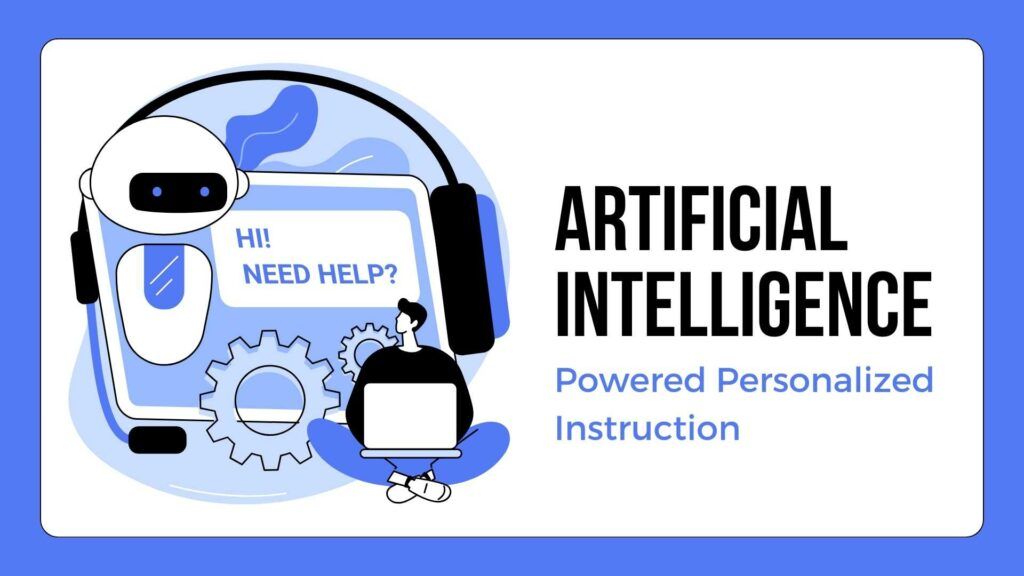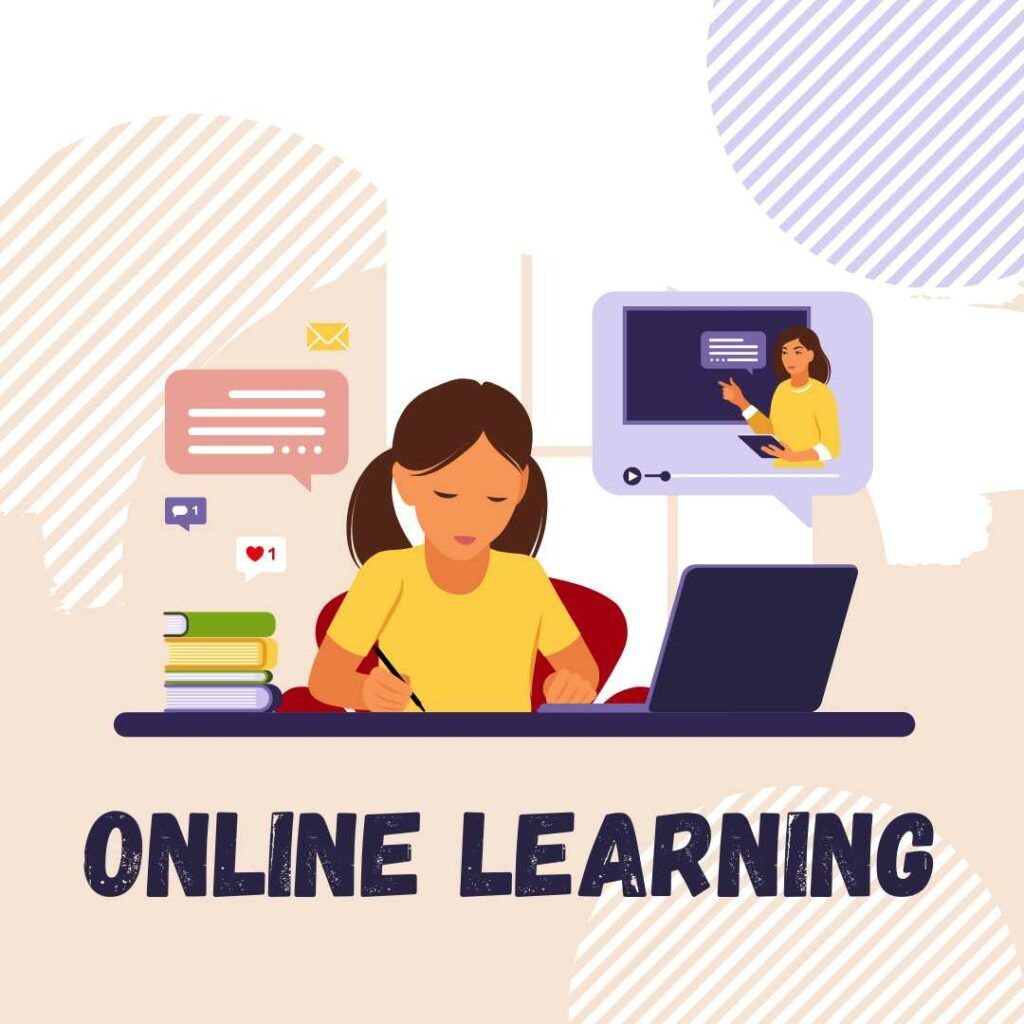Picture classrooms still using thick textbooks and paper assignments in 2024 while artificial intelligence, augmented reality and collaborative web tools shape professional careers outside school walls. Education disconnected from technology advancements increasingly fails learner job readiness despite best teacher efforts – because everything from knowledge accessibility to skill attainment modernizes rapidly.
That’s why cutting-edge digital disruption now reshapes academics at all levels – personalizing lessons for student strengths while better assessing mastery aligned to dynamic workplace competency demands through innovation adoption models revitalizing classrooms toward indispensable tech fluency priorities. This blog highlights 5 edtech trends powering more effective instruction inside schools and continuous learning lifelong.
Table of Contents
Why Education Requires Digital Evolution
Beyond simply making schoolwork easier, academic technology disruption aims squarely at maximizing genuine knowledge inside classrooms through:
Personalized Precision – Adaptive learning platforms analyze comprehension diagnostics continually optimizing lesson pace, multimedia formats and supportive resources unique to each pupils’ evolving needs – motivating through progress.
Retention Boosts – Immersive simulations via augmented and virtual reality allow naturally grasping abstract academic concepts through experiential 3D interaction – cementing durable recall improving grades.
Remote Inclusion – Online team collaboration environments empower authentic peer discussion, idea iteration and project planning that keeps remote students equally engaged using video tools typical of thriving workplaces.
Assessment Integrity – Data-gathering helps teachers accurately gauge assignment difficulty, comprehension rates and optimize question quality through analytical recommendations – fairly evaluating real mastery.
Skills Validation – Blockchain creates decentralized education credentials clearly summarizing in-demand abilities, certifications and experiential competencies for HR verification supporting employment and consulting opportunities aligned to fluid job require
In essence, technology facilitates instructional and assessment upgrades learners deserve through digital capabilities already proven across professions. Those innovations now create classroom experiences earning attention while elevating outcomes.
5 Edtech Innovations Revolutionizing 2024 Academics
1. AI-Powered Personalized Instruction

Imagine coursework adapting not just difficulty levels but multimedia approaches in real-time based on micro-assessments indicating precisely where stronger or weaker points emerge for each individual student – before frustration forms derailing focus.
Known as adaptive learning, this continuous customization combines:
- Dynamic content – Matching learning resources to changing comprehension through smart sequencing evaluated via analytics
- Predictive recommendations – Prescribing precise lesson interventions personalized from patterns identified
- Mastery dashboards – Letting pupils independently track and celebrate easily visualized mastery progression building intrinsic motivation
From elementary reading groups to multiplication tables and foreign language verb conjugation, personalized pathways prevent one-size-fits-all lessons missing struggling students now AI-assisted through targeted coaching, reminders and simplified reteaching resources.
2. Immersive Experiential Learning
Lecturing theoretical concepts still leaves many students questioning what core academic topics mean regarding reality. But emerging extended reality simulations immerse classrooms in 3D experiences across:
- Virtual field trips – Interactive science or history explorations from coral reef ecology underneath oceans to museum walkthroughs now possible without leaving desks.
- Augmented workspaces – Digital models overlaying English word structure or geometry objects letting manipulation reinforce abstractions through manipulated visualizations only technology enables.
- Applied career previews – Lifelike healthcare, architecture and other STEM/design professions previews built using gaming engines that cement relevancy for in-demand skills applied to diverse industries ahead.
Research shows knowledge activating multiple senses through technology boosts both content retention plus student enthusiasm through active digital discovery over outdated handouts alone.
3. Collaborative Remote Learning

Peer dynamics that make conventional classrooms conducive to exchanging perspectives, exploring curiosity through projects and forming social connections transfer to online environments through evolved remote platforms enabling:
- Integrated team video tools – Built-in conferencing, screen sharing and digital whiteboards allow interactive group work anytime – no schedule coordination headaches finding aligning blocks.
- Safe small group discussions – Monitored private chat channels facilitate text or audio conversations exploring lessons protecting identities for shy students gaining confidence.
- Gamified goal-tracking – Personalized dashboards with achievement badges, contribution metrics and reward animations incentivize participation consistently keeping remote learners progressing.
Blended learning models incorporating both physical and virtual cohorts benefit all through shared collaborative digital foundations equally keeping teams intellectually engaged using intuitive platforms purpose-built for education.
4. AI-Assisted Assessment
Evaluating student output at scale strains teacher capacities manual processes impose regarding consistency and personalized feedback depth learners deserve. Adaptive grading solutions provide:
- Auto-scored homework – Upload assignments and auto-receive percentage scores for quick adjustment opportunities towards simple mastery.
- Text analysis – Review long form writing identifying vocabulary sophistication, original perspectives and sentiment depth through algorithms trained on academic texts.
- Question quality analytics – Assess test sections pointing out unusually frequent wrong answer patterns indicating question ambiguity, spelling mix-ups or fundamental concept gaps needing review.
The systems act assistants not pure automation – allowing educators spending less tedious time on rote tasks and more on higher value personal mentorship. Analytics uncover insights delivering fairness through data.
5. Learner Skills Validation Networks
While degrees and certificates chronicle broad programs, validating specific in-demand competencies from data analytics to project management remain fragmented. Emergent blockchain-verified knowledge credentials allow trustworthy attribution of current expertise aligned to fluid job needs through decentralized records including:
- Competency attestations – Immutable confirmations of specific skill attainment by issuers like course platforms, coaches and mentors
- Experiential evidence portability – Links to credible examples work outputs proving applied capabilities beyond test scores
- Dynamic skills taxonomy integration – Enable context around dominating and declining skill relevancy over time using workforce datasets
Learners manage trustworthy competency profiles following wherever career leads based on market applicability, not just static academic records in past eras.
Conclusion
From artificial intelligence entering homes to mixed reality redefining entertainment, academics isolated from embedding ubiquitous technology severely disadvantage learner readiness graduating to participate in digital-first economies valuing adaptable expertise and critical knowledge application. But transformation starts simply introducing gadgetry. Savvy institutions actively shape curriculum benefiting from simulations, analytics and collaborative tools already advancing professionals ahead. They pave engaging pathways so emerging generations lead industries optimizing technology for equitable advancement rather than get disrupted through inaction defending dated models eroding relevance. Will yours progress or fall behind this decade?
FAQs
Beyond just budgets, teacher habit reluctance, limited parental tech literacy enabling proper use, rushed tool evaluations lacking pilot care, and cybersecurity risks skipping standards during rapid digitalization all impede adoption. Holistic transition strategies key.
Blended approaches balancing physical and digital instruction informed by learning science research tend to work best leveraging respective strengths. Pure online-only content risks engagement issues without personalization. But some topics benefit uniquely through technology like simulations.
Protect professional development time focusing new tools training while respecting the workload balancing act. Promote collaboration opportunities between adopters embracing innovations and skeptics where both demonstrate successes addressing any preconceptions through experience.
While intelligent algorithms personalize learning content, skilled educators focus more on higher value emotional intelligence nurturing curiosity through one-on-one mentoring, small group discussions, and inspiring project-based activities uniquely human while technology handles rote knowledge transfer tasks. Both harmonize.

